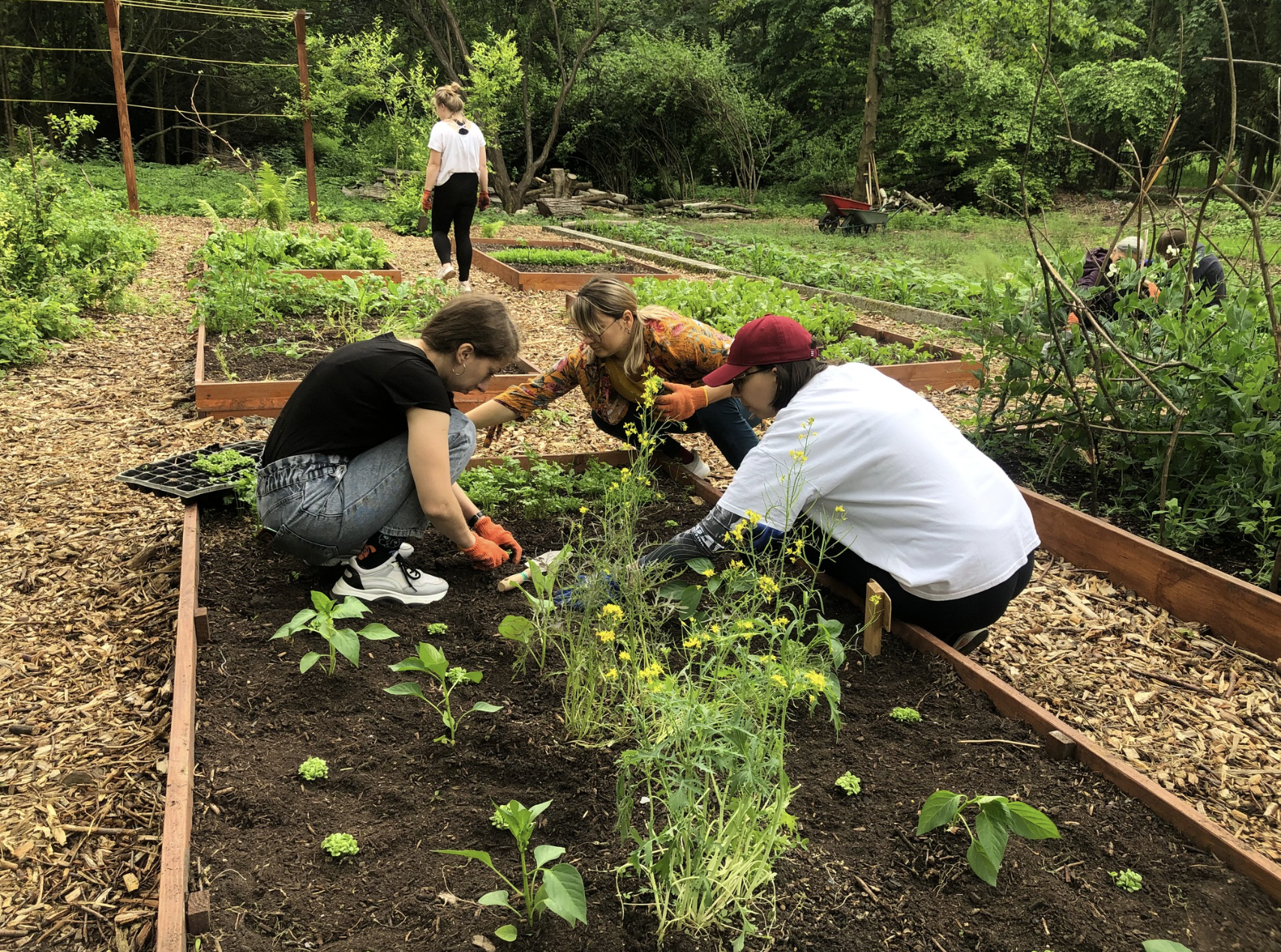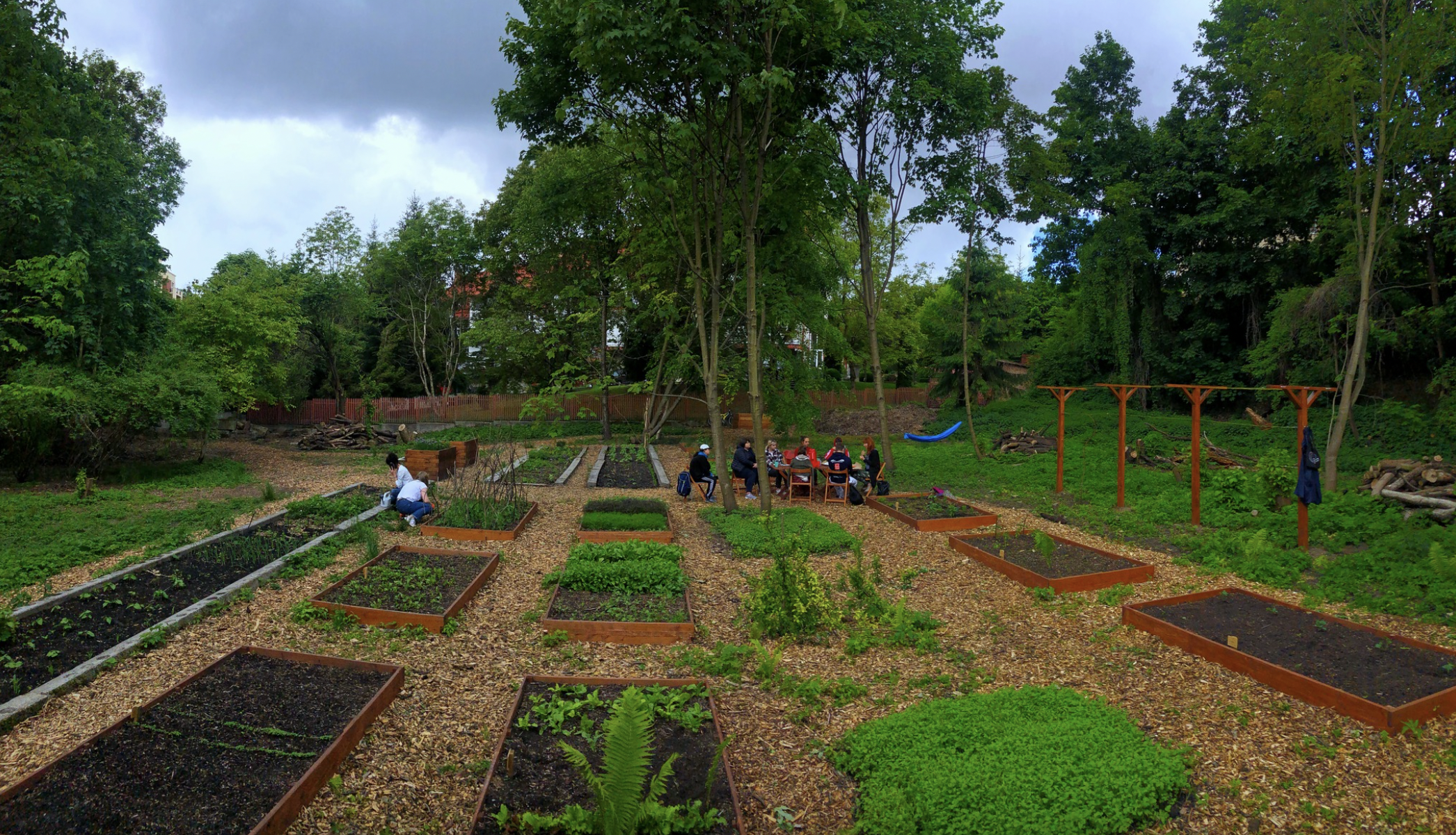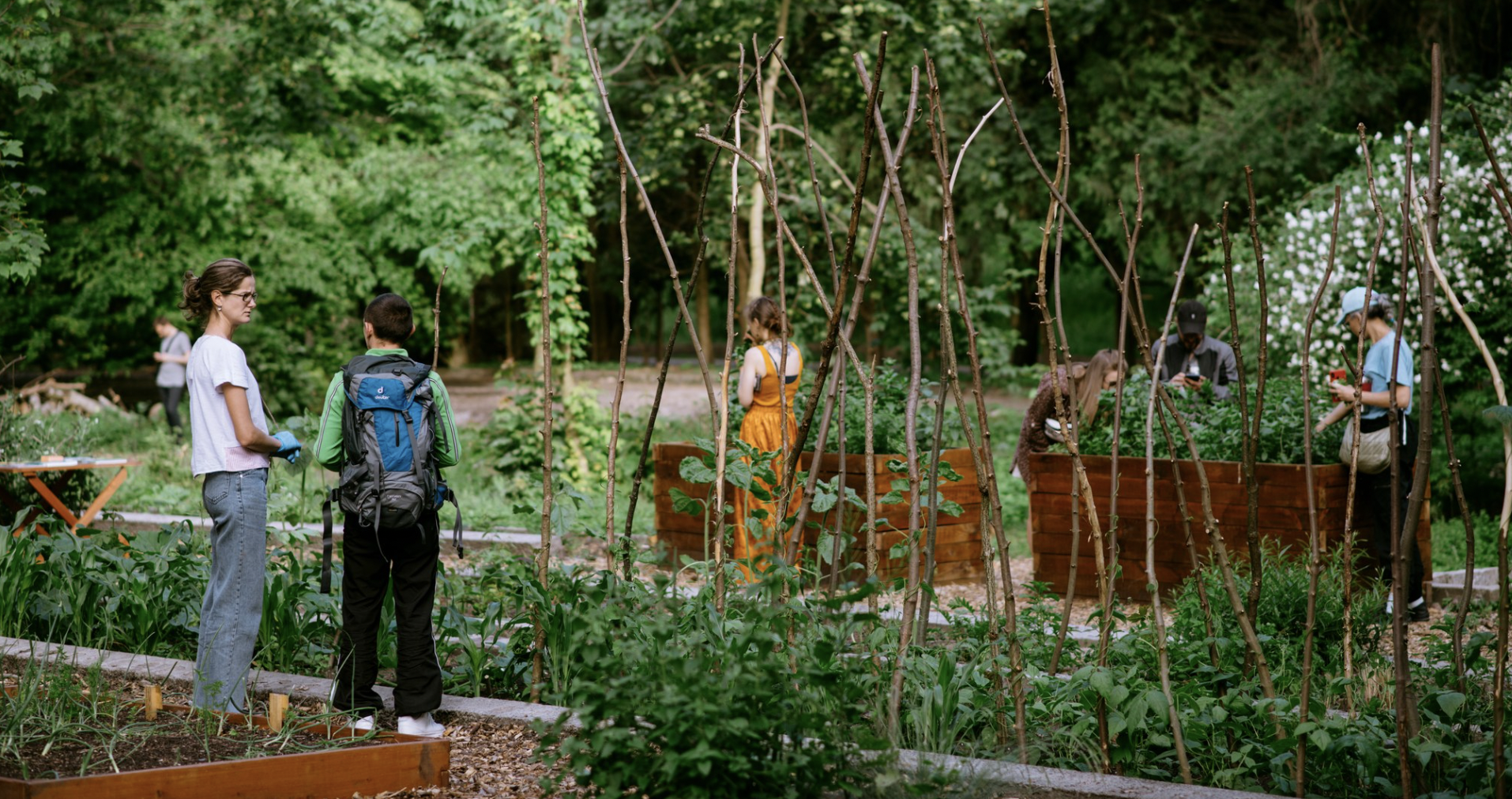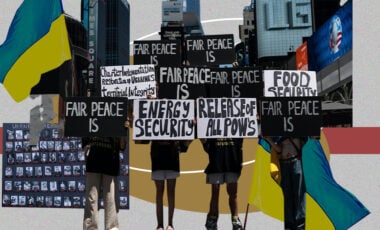City gardening and horticulture space in Lviv helps migrants cope with stress
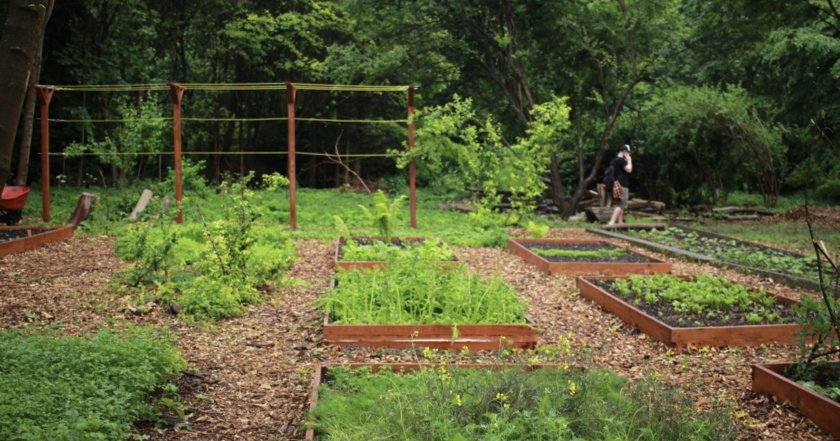
The Rozsadnyk city gardening and horticulture space appeared in the Lviv municipal park, Zalizna Voda, thanks to public associations Plato, Ecoterra, and Permaculture in Ukraine in April 2021. Now it has become a center of assistance for internally displaced persons.
"In February, we were convinced that the idea of developing space was not on time. But in mid-March, we began to consider our effectiveness in delivering humanitarian aid. The sun began warming up, and the Rozsandnyk [translated to plant nursery] tore us out of the continuous negativity and anxiety flow into the flow of something new. So we managed to ground ourselves, and after a few team meetings, we realized that we needed space, and space needed us. We realized that this season, it's appropriate to experiment in garden therapy, helping everyone who feels that the war has affected their psycho-emotional state in a possible gardening way," says the co-founder of the space Anzhelika Zozulia.
For more than half a century, garden therapy has been a separate scientific discipline in many Western countries, studying the influence of plants on the processes associated with various rehabilitation needs. Academic discoveries are based on practical experience, which shows that garden therapy classes positively affect visitors' psycho-emotional and physical conditions.
Garden therapy classes can be active (involvement in growing crops, caring for ornamental plants, participating in workshops, running, walking, etc.) and passive (sitting on a bench, drawing, meditating, etc.). Each of the formats can provide either individual or group involvement.
Since the beginning of the season, we have held more than 20 events, and more than 500 people have joined. There were many participants from Irpin, Kryvyi Rih, Mykolaiv, Kharkiv, and Mariupol. We don't always register for events, but when we do, we see that about 60-70% of visitors are IDPs. Within a 5-minute walk, there is a modular town for displaced persons in Stryiskyi Park, home to more than 350 people. We try to attract its inhabitants, but not only them. We cooperated with What If Creative School and together conducted creative classes for IDP teenagers. Many people learn about our events on social media or through media announcements. We rejoice when people come back again and again and share that they are more comfortable in space than anywhere else.
There was a lot of hard work at the beginning of the season to prepare for the new season. But since April, we have conducted more educational activities about growing and composting and climate change. There were classes in psychotherapy, workshops with clay modeling, and seed bombing; on Saturday, we invite you to a master class on making outdoor furniture.
Also, by joint efforts, we planted all the beds and already had time to taste the grown crop of radishes and lettuce crops, spinach, spider mustard, arugula, etc.
In general, there are many things in the beds: onions, carrots, beets, zucchini, tomatoes, cucumbers, beans, corn, sunflowers, and strawberries. Separately, we continue to form a collection of spicy-flavored crops, like mint, thyme, basil and root some ornamental shrubs, such as forsythia.
We experiment a lot within space for the sake of:
- reducing the level of stress caused by the war in those who need it;
- creating new formats of interaction that will complement proposals from other volunteers and municipal initiatives;
- testing new forms of leisure in urban gardens.
We have chairs and tables in May, so we invite everyone to hold open-air events in the space. The plans for this summer are to continue the development of infrastructure for growing and recreation, to take care of the plants, and to attract new visitors to the Rozsdannyk.
You can follow the announcements of events on the space's channel on Telegram and for news about its development on Facebook.
If you want to support the development of the space, you can donate to the account of the NGO Plato marked "Charitable assistance to Rozsanyk."


